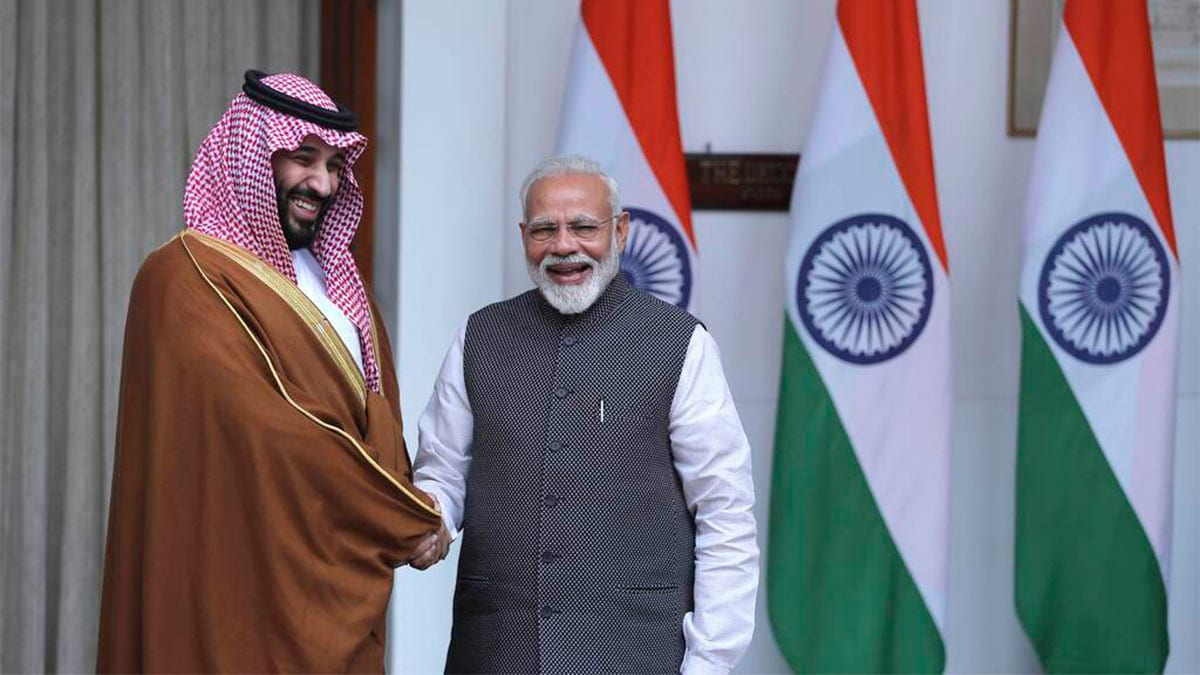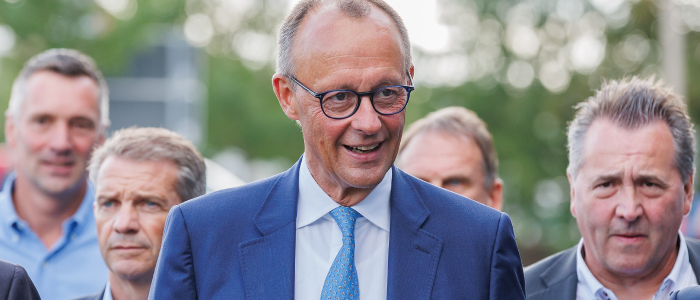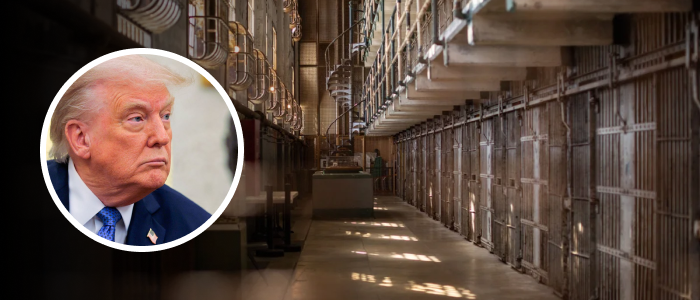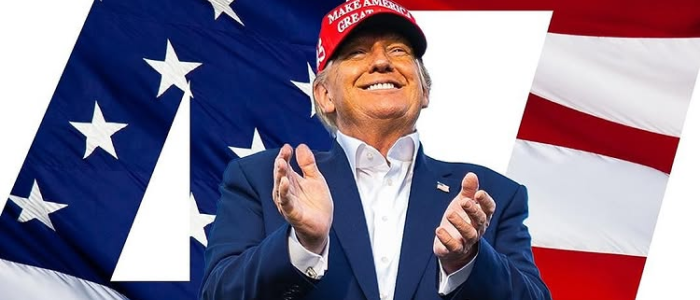Prime Minister Narendra Modi is scheduled to visit Saudi Arabia on April 22-23, 2025, on a bilateral visit. This would be PM Modi’s third visit to Saudi Arabia, the previous two being in 2016 and 2019. It was during his last visit in 2019 that the two countries had decided to elevate the bilateral ties to the level of a comprehensive strategic partnership.
Several big-ticket and high-value initiatives have been undertaken since then, as a result of which Saudi Arabia has not only emerged as one of India’s largest trading partners but has also become a close partner in deepening defence and security ties with India. The visit also comes at a critical inflection point in the West Asian region. The region has been battling with uncertainty and conflict for almost two years, since the outbreak of war in Gaza in October 2023.

Saudi Arabia has found itself in the middle of the conflict, having to rally support for the Palestinians and make critical decisions as the de facto leader of the region. The Gaza war has also upset several geopolitical equations for Saudi Arabia, with the normalisation of ties with Israel and the defence deal with the US being the two important ones. India has emerged as one of the most significant global players in recent times.
Its leadership role during the Covid-19 pandemic, the strategic autonomy exercised by it during the Russia-Ukraine war overcoming huge pressure from the West, the unprecedented success of the G20 Presidency in 2023 and its rise as the fifth largest economy in the world have catapulted it to a pole position in the world, where India is being courted to mediate peace and deliver leadership decisions on many global concerns. As Modi gets ready to meet Saudi Crown Prince and Prime Minister Mohammed bin Salman (MbS) in Riyadh, India and Saudi Arabia have a lot to share, discuss, and deliver, which could not only strengthen bilateral ties but also have a positive impact on the region. A Brief Recap of Strengthening Ties India-Saudi ties have been on the upswing over the past two decades.
Although the bilateral relations were elevated to a strategic partnership during PM Manmohan Singh’s visit to Riyadh in 2010 when the ‘Riyadh Declaration’ was signed, the bilateral ties got the real impetus when PM Modi undertook his first visit to Riyadh in April 2016, leading to enhanced cooperation in the political, economic, security and defence realms. During the visit, King Salman also conferred the Kingdom’s highest civilian honour, the ‘King Abdulaziz Sash’, on PM Modi. This period also coincided with Saudi Arabia’s major thrust towards political and economic reorientation.
In June 2017, the appointment of MbS as the Crown Prince and the de facto ruler of Saudi Arabia was the most significant. Coupled with this, the drive to diversify the economy away from fossil fuel-based revenue was also a major shift, as it opened the doors for partner countries like India to establish a presence in Saudi Arabia. The Saudi Vision 2030, launched in April 2016, marked a significant step towards it.
Notably, India was named one of the eight strategic partners in Vision 2030, which coincided well with India’s Look West policy, a key foreign policy thrust area of Modi 1.0. The visit of MbS to India in February 2019 further consolidated the ties, and the announcement that Saudi Arabia would invest $100 billion in India was a significant boost.
Modi’s second visit to Riyadh, in October 2019, marked a significant milestone, during which the ties were elevated to a ‘comprehensive strategic partnership’. This led to the establishment of a high-level council to steer the India-Saudi Arabia relationship. Later, Saudi Crown Prince MbS visited India in September 2023 to participate in the G20 Leaders’ Summit, as well as to co-chair the inaugural Leaders’ Meeting of the India-Saudi Arabia Strategic Partnership Council alongside Prime Minister Modi.
The signing of the India-Middle East Europe Economic Corridor (IMEC) project during the G20 Summit, with Saudi Arabia as one of the eight signatories, was a significant outcome not only for the region but also for India-Saudi Arabia cooperation. The IMEC promises to unleash new avenues to enhance trade, investment, and connectivity across the continents. India as the main anchor and Saudi Arabia with the longest length of transit route look to benefit hugely from it.
On the economic front, India and Saudi Arabia have taken huge strides in enhancing engagement. Bilateral trade has grown significantly. India is currently the second-largest trade partner of Saudi Arabia, whereas Saudi Arabia is the fifth-largest trading partner of India.
In FY 2023-24, bilateral trade stood at $42.98 billion. Saudi Arabia remained India’s third-largest crude oil sourcing destination for FY 2023-24 with imports of 33.
35 million metric tonnes (MMT) of crude oil. Saudi Arabia was also the third-largest LPG sourcing destination for India for FY 2023-24. Another significant milestone was Saudi Arabia’s largest energy company, Saudi Aramco, opening an office in Gurgaon in October 2017.
It signed a deal in April 2018 to build the world’s largest greenfield refinery with West Coast Refinery & Petrochemicals worth $44 billion in a joint venture with Abu Dhabi National Oil Company (ADNOC) and an Indian consortium. Later, in August 2019, Reliance announced that Saudi Aramco had agreed to take a 20 per cent stake in the company’s oil refinery and chemical business at an enterprise value of $75 billion. Realising the potential of the Indian economy, Saudi companies are investing aggressively in India.
The Saudi investment in India, including that of PIF, other Saudi companies, and the Saudi-backed Vision Fund, has already touched US$ 10 billion. To further explore opportunities, the first meeting of the Joint High Level Task Force on Investment (HLTFI) was held in July 2024, where opportunities for investments in diverse areas in the public and private sectors, including refining and petrochemical plants, new and renewable energy, and power, were discussed. Here too, Saudi Arabia reiterated its commitment towards investment of $100 billion in India.
On the security front, after a slow start, defence and security cooperation have emerged as a new area of close cooperation. Following up on the MoU on defence cooperation, signed during the visit of the then Crown Prince and Defence Minister, Prince Salman bin Abdulaziz Al-Saud, to India in February 2014, India is seeking close cooperation with Saudi Arabia. Options are being explored to engage Saudi Arabia under the “Make in India” initiative in the field of defence production.
There were some media reports in 2019 that indicated that Kalyani Strategic Systems, a wholly owned subsidiary of Bharat Forge, may have closed an offer to sell its Bharat 52, a 155 mm/52-calibre artillery gun, to Saudi Arabia. There have also been reports that Saudi Arabia has expressed interest in the BrahMos missile system. Joint military exercises have picked up pace too.
In February 2022, Saudi Arabia was one of the 46 countries that were invited to the Indian Navy’s “Milan Exercise”. Earlier, in August 2021, the first-ever bilateral naval exercise “Al-Mohed Al-Hindi 2021” was conducted in Al-Jubail, Saudi Arabia, and the first edition of the India-Saudi Arabia joint military exercise ‘Sada Tanseeq’ was held in the deserts of Rajasthan in January-February 2024. The first-ever visit by Admiral Fahd Abdullah Al-Gufaili, chief of Royal Saudi Naval Forces, to India, in January 2024, too, is a testimony to growing bilateral defence relations.
Expectations from the Visit The upcoming visit is essential not only from a bilateral perspective but also from a regional one. IMEC, which has struggled to gain traction, primarily due to the Gaza war, is likely to be a key point of discussion. It may be noted that Saudi Arabia is the only country which has pledged $20 billion for the project so far but has not progressed any work on its part of IMEC yet.
Meanwhile, India and the UAE have already undertaken bilateral measures to advance work in the eastern leg of IMEC. If India and Saudi Arabia can forge a bilateral understanding, many threads of the project could develop further. With the Gaza conflict unlikely to see an early resolution, discussions may also take place regarding the possibility of temporarily altering the route’s alignment through Egypt.
Defence cooperation is likely to get a boost. There could be agreements on intelligence sharing as well as cybersecurity. Counter-terror cooperation, which is already taking place, is likely to get codified in an agreement too.
Increased joint military exercises, Operational Turn Round (OTR) of naval ships, as well as logistical basing rights at crucial ports, could be discussed. Sale of military equipment and ammunition under the ‘Make in India, for the World’ too is on the table. Fintech, a field where India has emerged as a global leader, could be another area of cooperation.
India’s Rupay cards are already accepted in the UAE, Oman and some other countries, while UPI payments are accepted even in France. This visit could result in its expansion to Saudi Arabia too, which would be a good outcome given the 2.7 million Indian diaspora in Saudi Arabia.
In terms of soft power, Saudi Arabia can gain significantly from India. Like the UAE, Saudi Arabia could also invite Indian hospital chains, engineering and management institutes, such as the IIT and IIM, in the future. While the construction of a Hindu temple in Saudi Arabia may look far-fetched now, given the rapid pace of social changes currently underway in Saudi Arabia, especially with regard to women’s liberties and moderation in religious practices, it cannot be ruled out in the future.
For India, energy security is of vital importance. With Saudi Arabia being one of India’s top suppliers of crude oil, its offering to store strategic oil reserves in India could be a significant outcome of the visit. Additionally, cooperation in the field of renewable and green energy could be expanded.
Saudi Arabia already joined the India-led International Solar Alliance. It also signed an MoU with India on cooperation in green energy and hydrogen during the Middle East and North Africa (MENA) Climate Week in Riyadh in October 2023, which establishes a framework for collaboration in several key areas. Within it, facets like ‘Electrical Interconnections’ explore the feasibility of interconnecting their national power grids, while aspects in ‘Green/Clean Hydrogen and Renewable Energy’ intend to foster collaboration in the co-development and co-production of green and clean hydrogen, as well as renewable energy projects.
The MoU also emphasises the establishment of secure, reliable, and resilient supply chains for materials used in the green/clean hydrogen and renewable energy sectors. These aspects could get a renewed and more focused push during the visit. Conclusion The upcoming visit of PM Modi to Saudi Arabia is coming at a time of great regional turmoil and uncertainty owing to the Gaza War, US-Iran nuclear talks, Israel’s aggressive military strategy in Lebanon and Syria, and the tariff war unleashed by President Trump.
It also comes weeks before President Trump’s projected visit to Saudi Arabia in May, which would be his first foreign visit in his new presidency. With PM Modi and India advocating peace and reiterating to the warring nations that ‘this is not the time for war’, this visit could push for peace and stability in the region in addition to laying the foundation of India’s strategic outreach in West Asia for the next decade. Progress on IMEC, energy cooperation and security ties could pave the way for mutually beneficial growth, forcing the region to think beyond the never-ending spiral of conflict.
Most importantly, this visit promises to build bridges across the Gulf, bringing people and the two nations closer than ever. Col Rajeev Agarwal is a West Asia expert and a Senior Research Consultant at Chintan Research Foundation, New Delhi. His X Handle is @rajeev1421.
Views expressed in the above piece are personal and solely those of the author. They do not necessarily reflect Firstpost’s views..
Politics

PM Modi's Saudi Arabia visit will bolster India-Gulf ties amid regional turmoil

The upcoming visit of PM Narendra Modi to Saudi Arabia is coming at a time of great regional turmoil and uncertainty owing to the Gaza War, US-Iran nuclear talks, Israel’s aggressive military strategy in Lebanon and Syria, and the tariff war unleashed by US President Donald Trump















